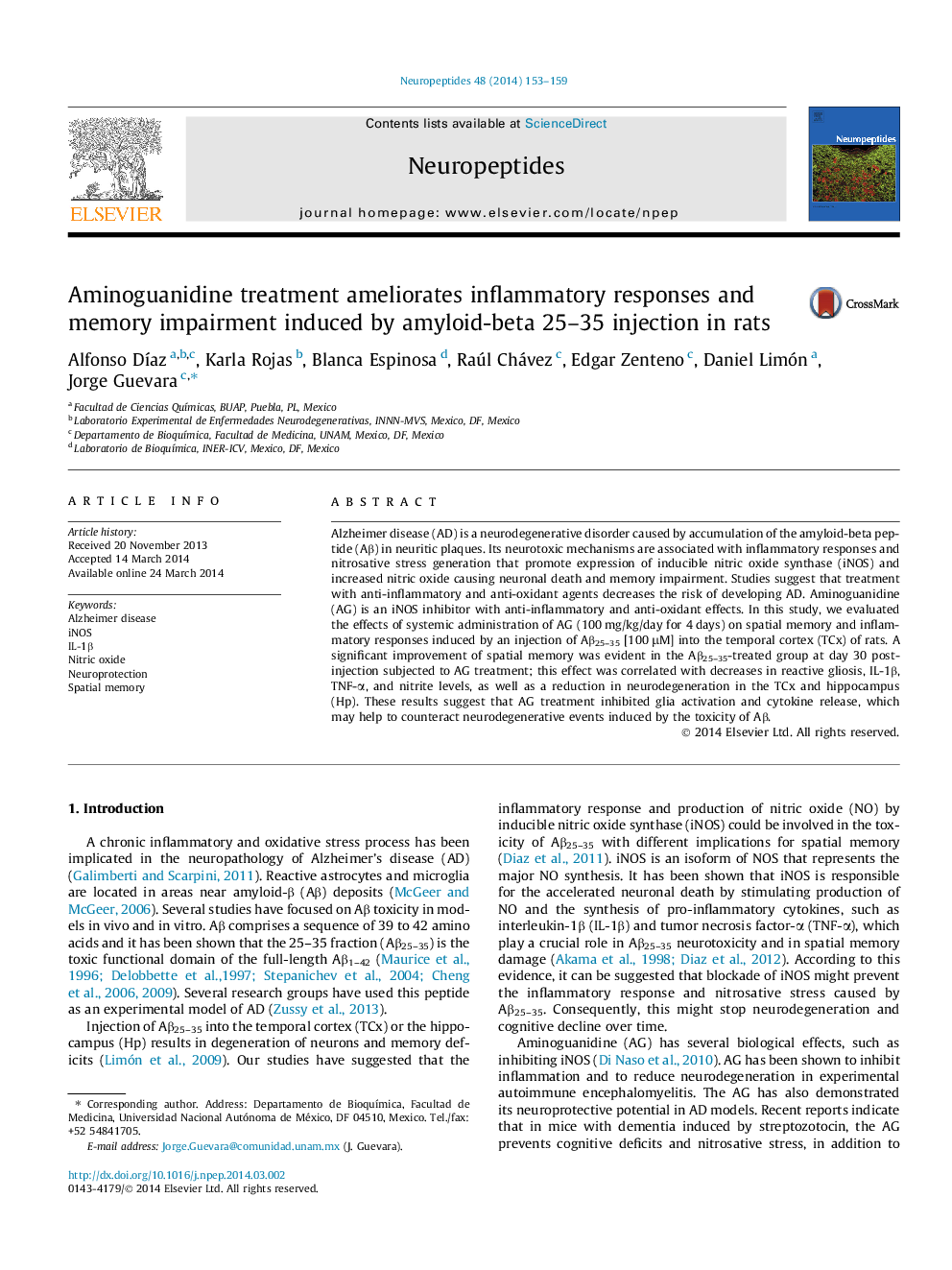| Article ID | Journal | Published Year | Pages | File Type |
|---|---|---|---|---|
| 2808046 | Neuropeptides | 2014 | 7 Pages |
Alzheimer disease (AD) is a neurodegenerative disorder caused by accumulation of the amyloid-beta peptide (Aβ) in neuritic plaques. Its neurotoxic mechanisms are associated with inflammatory responses and nitrosative stress generation that promote expression of inducible nitric oxide synthase (iNOS) and increased nitric oxide causing neuronal death and memory impairment. Studies suggest that treatment with anti-inflammatory and anti-oxidant agents decreases the risk of developing AD. Aminoguanidine (AG) is an iNOS inhibitor with anti-inflammatory and anti-oxidant effects. In this study, we evaluated the effects of systemic administration of AG (100 mg/kg/day for 4 days) on spatial memory and inflammatory responses induced by an injection of Aβ25–35 [100 μM] into the temporal cortex (TCx) of rats. A significant improvement of spatial memory was evident in the Aβ25–35-treated group at day 30 post-injection subjected to AG treatment; this effect was correlated with decreases in reactive gliosis, IL-1β, TNF-α, and nitrite levels, as well as a reduction in neurodegeneration in the TCx and hippocampus (Hp). These results suggest that AG treatment inhibited glia activation and cytokine release, which may help to counteract neurodegenerative events induced by the toxicity of Aβ.
